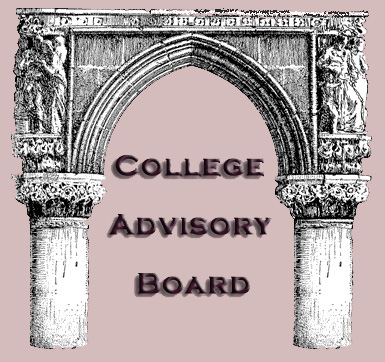|
Professional business people founded the College Advisory Board (CAB) in response to issues revolving about higher education. The inclusion of the many factors relevant to securing a seat at a desirable university can provide to be, and is, a major decision affecting any number of people. The interaction of parent and student plays a significant role in location and major field of study. Some of this communication is frank and yet at other times there can be an undercurrent of confusion and frustration between the two parties that can measurably affect the quality of education desired by the student. Other major participants include guidance counselors, admissions officers, relatives, friends and others who can sometimes direct the thought processes of both parent and student. And, lastly, the community-at-large has an often unstated, but palpable interest in the quality, integrity and capability of graduates entering the workforce. Much critical commentary addresses the type of education being taught in today's high schools. The character and depth of course work, the number and relevance of electives, the value of homework, and competing interests for a student's time all can help create a chaotic early life experience for our youth. All this coupled with changing value systems, relational morality, and theological confusion, indeed erect many real and implied obstacles with which young (and older!) minds must contend. The role of CAB is not so much to enjoin discourse on social commentary but rather to become a symposium on the more familiar challenges of pursuing a college degree. The broader scope of positioning students so that they finish their initial
degree in the shortest time is a cost-saving factor for the parent and other
benefactors. The typical four-year degree takes roughly five and a half years
to complete in the
The CAB encourages students and parents to ask these questions, and more, of their high school guidance counselors, college admissions officers, alumnae and those in fields in which they find an interest. Students can be presented with several diagnostic assessments which can prepare them better for the college experience. Have a college planner administer the Myers-Briggs Personality Assessment, ACT, and Miller Analogy Test to help the student understand some of their core principles and critical thinking skills. Being able to define one's interests can lead to early career choices at which time a major can be identified. At this point it becomes easier to research for the compatible university based upon the field of study. By following a direction of research and analysis of this nature, one can dramatically cut the cost of attendance - to everyone's benefit. |
|---|








